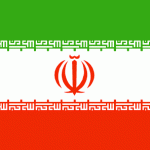Posted in National and regional statistics on 10/30/2009 09:15 pm by Stephen Tindale

This document sets out some of the important climate change statistics concerning energy use in Iran.
read more »
Posted in Comment on 10/29/2009 08:00 am by Stephen Tindale
President Obama has unveiled a $3.4 billion programme to upgrade the US electricity grid, turning it into a ‘smart grid’. This will make it more efficient, so that less energy is lost during transmission and distribution, and it will be easier to harness renewables, including intermittent ones like wind and solar.
read more »
Posted in Comment on 10/26/2009 06:30 am by Stephen Tindale
This morning the Green Fiscal Commission is publishing a report based on extensive research and economic modelling, which demonstrates that increasing taxes on energy use and other environmental ‘bads’, and reducing them on labour and income, would have both climate and economic benefits.
read more »
Posted in Comment on 10/23/2009 06:46 pm by Stephen Tindale
On Thursday 22 and Friday 23, I went to Clingendael, the Netherlands Institute for International Relations, for a seminar on how to meet the EU 20% renewables target. It certainly felt ironic for an Englishman to be invited to go and tell the Dutch what to do about renewable energy.
read more »
Posted in National and regional statistics on 10/21/2009 11:24 am by Stephen Tindale

This document sets out some of the important climate change statistics concerning energy use in the Netherlands.
read more »
Posted in Answers to your questions, Technology on 10/20/2009 04:13 pm by Administrator

Will it be possible to build all the necessary nuclear power stations in time, what emission savings can be made and will the nuclear industry close them down when and if they are not needed?
Shaun Bernie
read more »
Posted in Comment on 10/20/2009 03:28 pm by Stephen Tindale
Most international discussion about climate change this week has been about finance, not targets. This is good news. Targets are important, but mainly for focussing attention.
read more »
Posted in Policy on 10/20/2009 10:15 am by Stephen Tindale

In 1992, the UN Framework Convention on Climate Change (UNFCC) was signed at the first World Summit on Sustainable Development, which was held in Rio de Janeiro. The Convention did not set targets, but provided the framework for negotiations about targets. These were agreed in the 1997 Kyoto Protocol.
read more »
Posted in National and regional statistics on 10/16/2009 08:38 am by Stephen Tindale

This document sets out some of the important climate change statistics concerning energy use in Turkey.
read more »
Posted in Climate Answers' projects, Comment on 10/15/2009 11:18 am by Stephen Tindale
“Think global; act local” – the phrase often used by of Friends of the Earth – is an excellent philosophy. Since most of us do not have the power to influence international events, we should focus more on taking practical steps in our own localities. Climate change is the ultimate global issue and it does not matter where greenhouse gases are emitted. So global thinking is needed. However, practical measures are more important than yet more thought and discussion or international targets. Copenhagen is important, but must not be the only focus at the moment.
read more »






